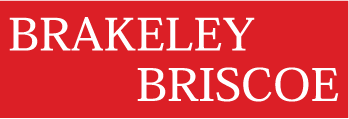“This, Too, Shall Pass”
George A. Brakeley III
George A. Brakeley III is Chair of Brakeley Briscoe. His career spans over 50 years of consulting. In 2009 he offered this long view on fundraising in the 2008 recession.
“This, too, shall pass.” Years ago and in another profession, I heard those words from my first boss whenever there was a crisis on hand. His perennially optimistic outlook pervaded the entire shop, and, as it turned out, he was almost always right. Some how, some way, we got through whatever it was.
In today’s incredibly challenging economic environment, these are good words to remember, for a number of reasons.
First, the record shows that philanthropy has historically been a remarkably resilient phenomenon in our society, having increased annually every year since WWII with only a few blips on the screen, according to Giving USA. Even today, the truly large gifts—we’re talking ten digits here—continue to be made, not just by the likes of the Gates Foundation but also by individuals. At the other end of the spectrum, not every 501(c)3 is experiencing declining annual support, if the experiences of our clients are any indication
Second, Darwin was right—only the fittest survive, and only then if they adapt to their environment. Those who “do it right” and adapt promptly and pragmatically to what’s going on around them should be able to continue to compete effectively for philanthropic dollars. As a case in point, this would hardly seem to be the time to be launching campaigns, yet Boston College recently kicked off a $1.5 billion effort. The University of Texas announced a $3 billion campaign in October. Rice University announced a $1 billion campaign, the Atlanta Ballet a $14.8 million campaign, and Brooklyn Academy of Music $300 million, all in January—and there are others.
Be an Optimist
Third, we have to be optimists by profession, seeing the glass as half full and facing today’s challenges with courage and conviction. If we are down in the mouth, our colleagues and donors will pick that attitude up in the blink of an eye, and our pessimism will become a self- fulfilling prophecy.
What to do?
There is no lack of advice in the philanthropic press and the professional journals, which are publishing countless articles, monographs, survey results, conferences and webinars, and the like. All are well worth reading
and heeding, but listening to advice and implementing it are two very different things.
Through it all, a few key points emerge in my mind.
Don’t Panic
First, your attitude is everything. Don’t panic, don’t hunker down and bury your head in the sand, don’t assume and accept the worst. Rather, be unfailingly positive and contagiously enthusiastic about your institution or organization, its mission and its aspirations. And by all means don’t stop interacting with your donors for fear of offending them. You have a good and worthwhile cause, and its needs are not going to go away or diminish in urgency.
Stick to Best Practices
Second, even in bad times, the tried-and-true philosophies and best practices that have worked
for generations continue to prevail and to be effective. This is no time for dramatic and innovative initiatives, but it certainly is the right time to make sure that you reconfirm and, one hopes, even strengthen the ABC’s of how you do carry out your mission.
Keep in Touch
Third, stay in even closer touch with your constituents, especially your major donors. Stewardship looms large. This is no time to back off, because you will be conspicuous by your absence. Quite the opposite—this is one of those times when you go back to your most loyal supporters. Communicate, communicate, communicate—but with a high level of sensitivity about the economic environment and how it is affecting your audiences.
Ask
Fourth, don’t be afraid to ask, especially when you have a case that matches the interest of your targeted audience. Don’t be defensive or apologetic about asking. You may be asking for less than you’d like, and you may need to be very selective about it, but get out there and ask. You may well hear, “I just can’t make a decision now,” but that’s a “No, not now,” not a declination.
In December one Brakeley Briscoe client decided to proceed with their campaign, and the Campaign Cabinet is now out asking their Trustees and special friends for “quiet phase” gifts—only they are asking not for firm commitments but rather for “a statement of intention of what the prospect would like to do when things get better.” The plan is to go back in six to nine months and firm things up. So far it’s working very nicely.
Next, planned giving is more important than ever before. Consider being more flexible about how you ask your prospects to give. Yes, you would prefer cash on the barrelhead, but better to obtain a planned gift now than not to ask at all and have to play catch-up ball later on. Others are asking; why not you?
In the downturn that followed 9/11, the philanthropic community pretty much came to a standstill for months, even years. Not for a minute am I downplaying the seriousness of our current economic downturn, but this time there continues to be a good deal of significant activity. We are, the pundits say, a long way from recovering, but the needs of our non-profits, and the audiences they serve, demand that we move forward deliberately but realistically; positively and not apologetically; aggressively but not insensitively.
